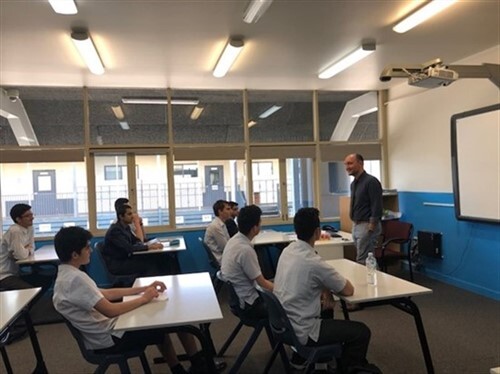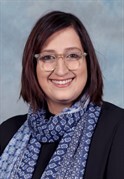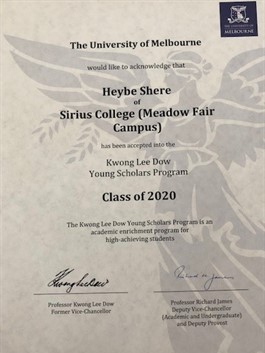

2018 Art Exhibition


The Sirius College Annual Secondary Art Exhibition was held at the Hume Global Learning Centre this term, showcasing the very best artworks produced by Sirius College students from years 7 to 12 from Eastmeadows, Meadow Fair, Sunshine and Keysborough campuses.
The exhibition included works from subject areas such as visual arts, textiles, graphic design, VCE Studio arts and VCE Visual Communication Design. Year 7 artworks focus on the art of ancient Egypt, which has been explored through a combination of sculpture and drawing and they have produced some printmaking works using relief printing methods. Year 8 students displayed Australian landscape paintings on canvas, architectural design and some mosaic works. From our years 9 and 10 electives subjects of graphic design and visual arts, some packaging design and architectural work was displayed in addition to artworks in the style of cubism, pop art, impressionism and surrealism.
Further to this, the exhibition showcased the immense talent of our photography students as well as displaying various textiles works. Finally, the work of our VCE Studio arts and Visual Communication Design students work was on display, showing the creativity, skill and dedication they have applied to creating highly refined and resolved artworks and folios. The night concluded with a robotics demonstration by two year 8 students, Eyyub Cokcu and Adem Turgut.





Eye Testing at MFC


Our team of researchers visited Sirius College in November 2018 to assess whether secondary school students had pre-clinical signs of keratoconus. Keratoconus is a condition which effects the front window of the eye, the cornea. Keratoconus may go undetected for many years as the effects of corneal irregularity initially has no symptoms. It usually becomes noticeable only after the progression reaches a severe level. An eye with severe keratoconus usually has drastically decreased vision that may not be treatable using conventional optical aids, such as spectacles and/or contact lenses, leading to the need for a corneal graft surgery. New strategies such as corneal cross-linking have the potential to avoid the need for a corneal graft, however, this requires early detection and intervention. Symptoms of keratoconus may include blurring and change in prescription, light sensitivity, halos or ghosting around light. Those who have allergies, especially hay fever are more at risk of developing keratoconus, however, it can affect everyone. A take home message for all parents is look out for these symptoms and DO NOT ALLOW YOUR CHILD TO RUB THEIR EYES. If your child rubs their eyes often due to allergies or itchiness see your healthcare professional for treatment. Rubbing your eyes will make them itchier and cause damage. Avoid RUBBING EYES.
New cutting-edge German technology has just introduced the newest scanning device and research to detect pre-clinical keratoconus. This scanner is usually found in specialised hospitals and ophthalmology/optometry clinics and for the first time in the world it was taken to a school, Sirius College, for screening. The instruments new analysis software allows pre-clinical detection of the disease, which means before symptoms or clinical signs are noticeable. Early detection and treatment will ensure the student has the best opportunity to maintain good vision for life.
All parents will receive the scans and a detailed report of the outcomes for each eye within January. All scans should be kept by parents in their records as a baseline and taken with them to any optometry visits. Every child should have an eye test every 2 years by an optometrist. This service is bulk billed to Medicare.
VCE News from our TLC
Year 11 and 12 Orientation and Transition Program


In Week 8 and Week 10 of Term 4, we have hosted our Orientation event for our students who are transitioning to Year 11 and 12 in 2019. It was a fantastic opportunity for our teachers to use this time to begin the content for 2019 subject areas, discuss expectations, assessment breakdown as well as cover subject specific content.
Our IDC Campus students had the opportunity to meet their peers, teachers and get to know the campus for next year. Students have also used this time to ask questions and have a head start to the various subject areas in order to have a smooth transition to the 2019 academic year.
We look forward with much anticipation for a wonderful 2019 Sirius College experience.
VCE Examination Period and Results
Term 4 always seems to go by at twice the pace of all the other terms in the school year, especially for our Year 12 students. Our Year 12s are to be commended on their respectful approach to celebrating their final day and their graduation. Our Year 11 and Year 12 students have now completed their VCAA examination period and we wish them all the best.
VCE results and ATAR will be available at the website below from 7:00am Friday, the 14th of December. Students must register to use this service before results become available. Results will arrive in the mail from Monday, 17th December to your home address and students can change their tertiary preferences up to 12 noon on 19th December.
https://resultsandatar.vic.edu.au/
I would like to take this opportunity to wish all our students a safe holiday and look forward to watching them pave their journey next year beginning 31st January, 2019.
University of Melbourne Kwong Lee Dow Young Scholars Award


The Kwong Lee Dow Young Scholars Program offers participants the opportunity to mix with like-minded peers and future leaders. A tailored program of events and activities will support and enhance their VCE studies, inspire their career plans and provide opportunities to interact with the University community.
On behalf of Meadow Fair Campus, I would like to congratulate Heybe Shere for being awarded the Kwon Lee Dow Young Scholars Award. We wish him the best in his future endeavours and his VCE studies. Well done!
Ms. E. Sener